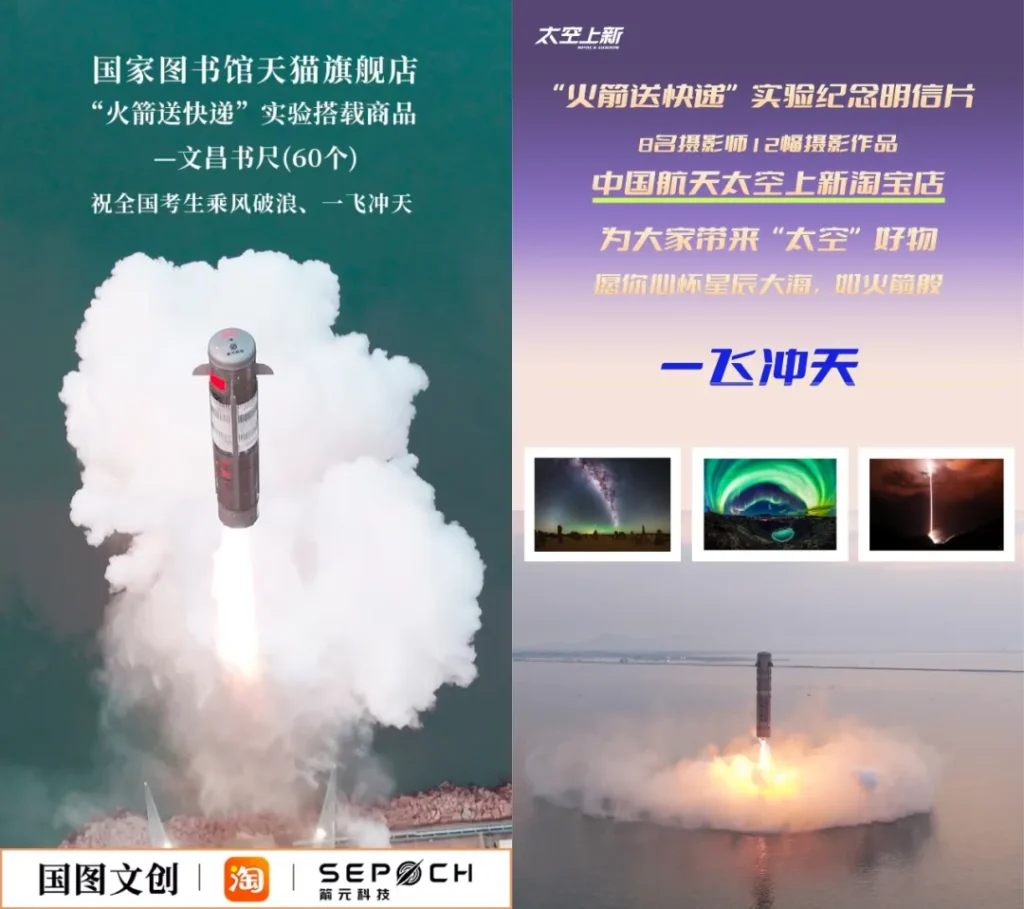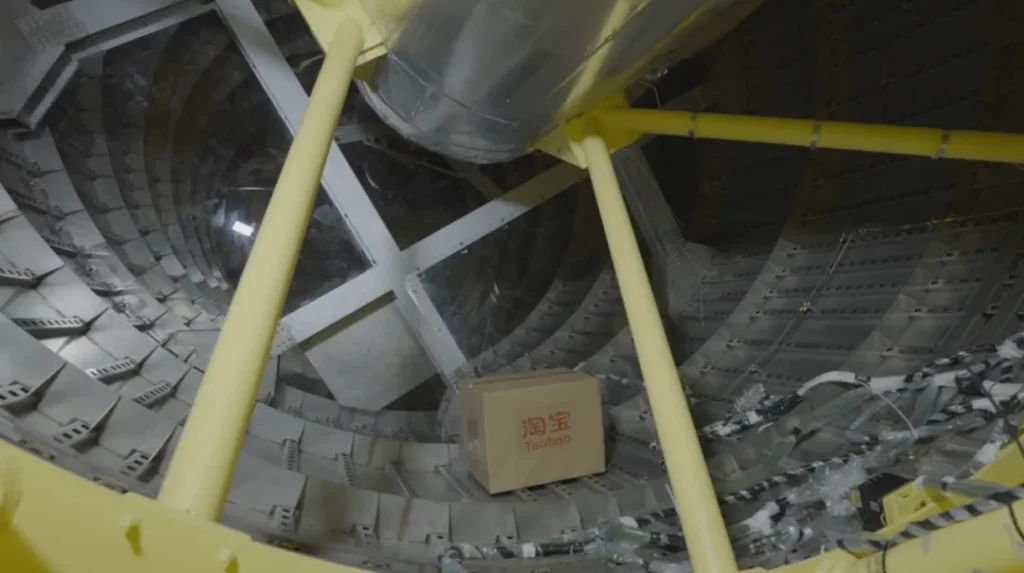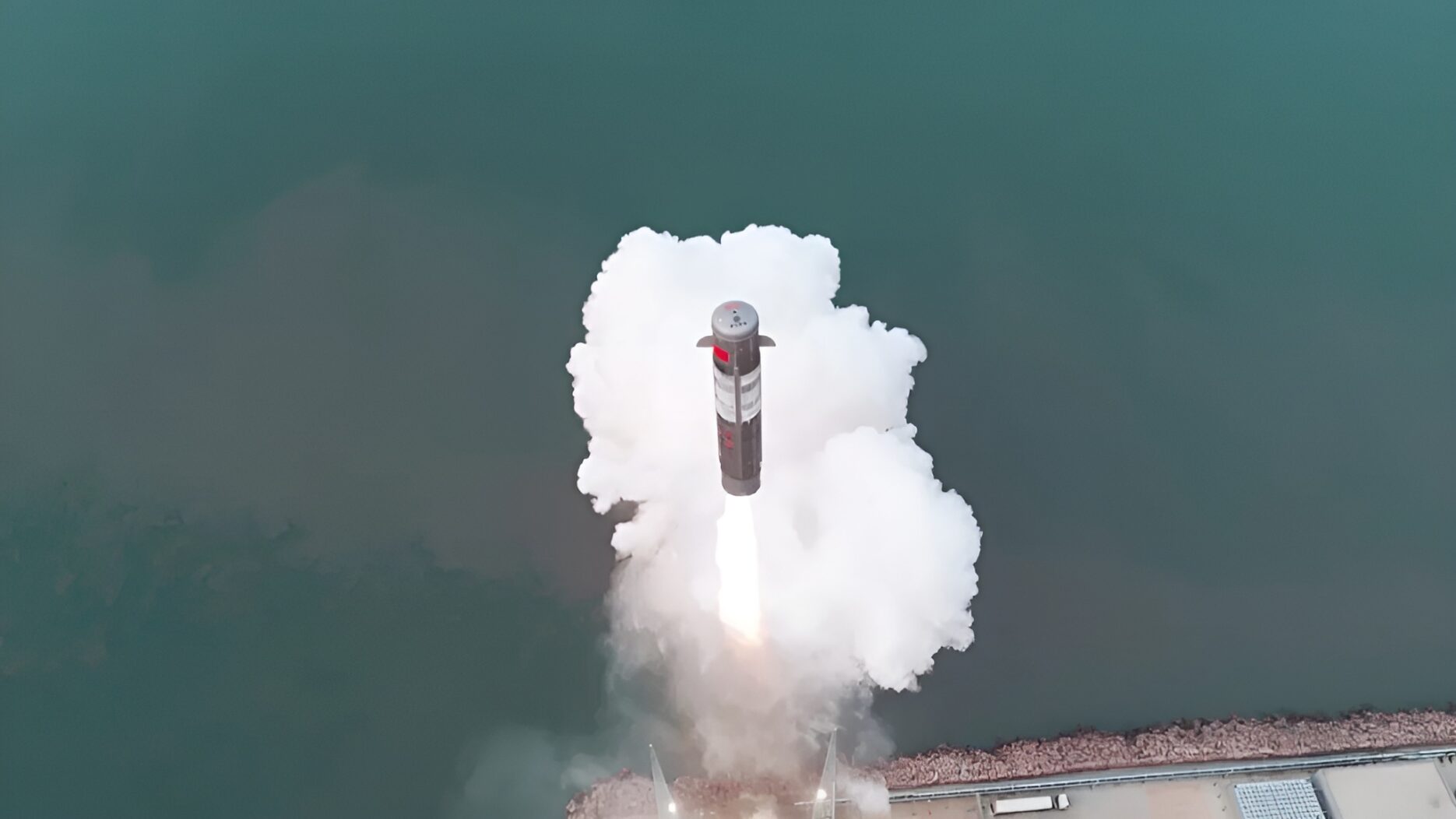Last year, during April Fool’s Day, Taobao teased that it was working with the Chinese private space launch company Space Epoch (箭元科技, also SEPOCH) to test the feasibility of delivering parcels by rocket to achieve “1-hour” delivery globally. At the time, netizens suspected that it was an April Fool’s joke and that private carrier rockets are far from Taobao’s proposed goal. Taobao simply responded with “many great achievements looked like a joke in the beginning”.
On 5 June, Taobao announced that it had successfully tested the feasibility of rocket-delivered parcels. On 29 May, Space Epoch successfully tested its reusable ZXY-1 (元行者一号) rocket. The rocket flew for 125 seconds at low altitude before soft landing in the ocean. This is a demonstration of a Vertical Takeoff and Vertical Landing (VTVL), similar to SpaceX’s Falcon 9 and Starship.


The ZXY-1 rocket carried 20kg of parcels from the Chinese National Library Tmall store and Space Goods, a space programme merch store on Taobao, as well as some postcards made for the test launch. The rocket also has a 120 cubic metre payload system, capable of carrying 10 tons of cargo. The rocket is not only capable of cargo retrieval after landing, but also airdropping its payload midair. Currently, rocket delivery would only be used for aid dropping or emergency delivery due to the costs. However, Taobao is confident that with the drop in cost in the private sector in the future, Taobao will be able to use rockets for its deliveries.
The test was not only a great publicity stunt for Taobao but also a great showcase of usage for civilian rockets. With the support of large tech companies such as Alibaba, owner of Taobao and Tmall, China might catch up with global competitors such as SpaceX in the private launching sector very soon.




